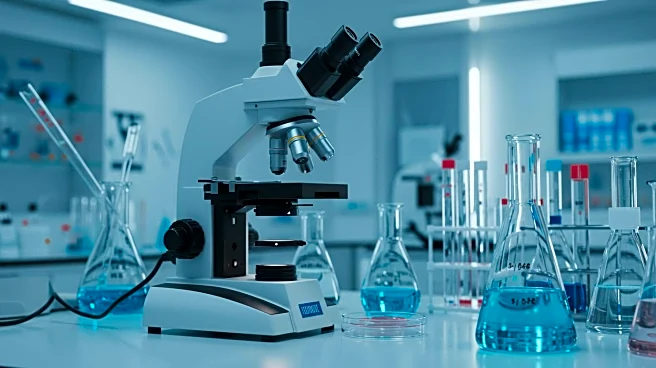What is the story about?
What's Happening?
The FDA has identified significant contamination issues at a production facility operated by Novo Nordisk in Indiana, which is used by multiple drugmakers including Regeneron and Scholar Rock. The facility, previously owned by Catalent, was acquired by Novo Nordisk's parent company, Novo Holdings, in February last year for $16.5 billion. The FDA report highlights unresolved contamination by atypical extrinsic particles, such as cat hair, and bacterial contaminations, along with pest infestations. These issues have raised concerns about the quality of drug products manufactured at the site. Novo Nordisk has responded to the FDA's observations with a comprehensive plan to address the issues promptly.
Why It's Important?
The contamination issues at the Novo Nordisk facility have significant implications for the pharmaceutical industry, particularly for companies relying on this site for drug production. Regeneron has already experienced delays in FDA decisions for its high-dose version of the eye drug Eylea due to these problems. Such delays can impact drug availability and potentially affect patient treatment schedules. The scrutiny from the FDA underscores the importance of maintaining high-quality standards in drug manufacturing, which is crucial for ensuring patient safety and maintaining trust in pharmaceutical products.
What's Next?
Novo Nordisk is actively working to resolve the contamination issues identified by the FDA. The company has filed a comprehensive response and is taking appropriate actions to address each observation. Regeneron expects FDA decisions regarding its applications for Eylea HD to be delayed until the fourth quarter. Scholar Rock is also awaiting an FDA decision for its drug apitegromab, with the inspection not specifically targeting this product. The industry will be closely monitoring how Novo Nordisk addresses these challenges and the impact on upcoming FDA decisions.

















